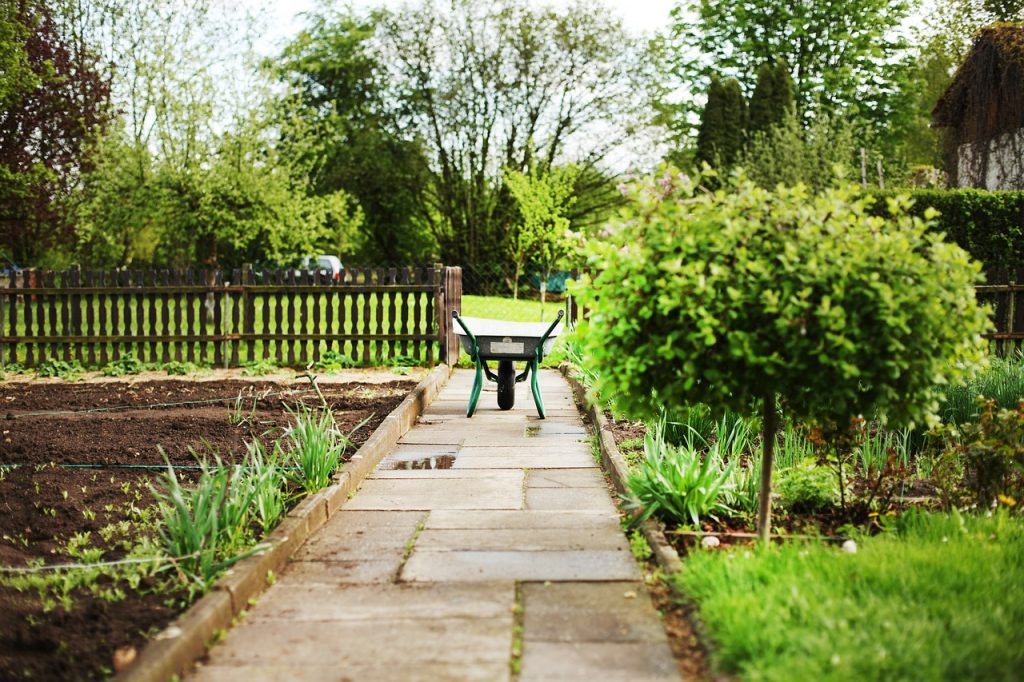Long term elimination of pests is the best way to handle pests in the home garden. Though not entirely embraced, natural pest control pest methods are effective and safe for both humans and pets. Struggling with tick yard treatment at home? In this guide, we have shared with you impactful tips to make your home garden 100 per cent pest-free.
1. Hot Pepper Spray
Your garden needs something like hot pepper spray to control pests and let your plants grow freely. The solution is created by mixing one gallon of water, three tablespoons of hot pepper flakes, and ten peppers chopped up evenly in case you are using them fresh. Though other varieties also work excellently, you will be happy with what cayenne can do. Simmer the mixture in a pan for around ten minutes and leave it for 24 hours. Give it a few drops of soap so that the solution adheres to your plant on application.
2. Use Barriers
With physical barriers, you can prevent pests from attacking your crops. You can do this in many ways, but one of the easiest ones is the fine net. Place the net over your fruits and vegetables and let it stay there, but make sure to leave enough space to let your plants grow to maturity. Cardboard collar can be added around the stems of plants and pressed into the soil to let it go one inch or so deep. This will ensure that cutworms and other burrowing warms do not find their way to your plants through the soil.
3. Companion Planting
Some plants have a natural plant repellent, which means they might be very advantageous when planted alongside other crops. For instance, you can control pests in your garden by planting garlic next to vegetables. This is an effective way to control aphids, Japanese beetles, and spider mites. If basil is grown near potatoes, they can repel potato hornworms. You can also repel cucumber beetles and nematodes by planting marigolds with cucumbers or squash.
4. Attract Beneficial Predators
As you try to drive away pests from your home garden, note that not all bugs are bad. You can use some of them to achieve the bottom line. Also, some bug can be beneficial in that they help with pollination and decomposition of waste. Some of them can also gobble up pests that deter your crops from thriving. Start by understanding which bugs can benefit your crops and the rest that can be problematic.
Bugs like bees, ladybugs, praying mantis, ground beetles, and small pirate bugs can help your crops in many ways. As a farmer or homeowner, try to see that your garden is as diversified as possible. Try to work on seeing that your crops bloom year-round to attract good insects to help with pollination and gobbling up pests.
5. Consider Mechanical Pest Solutions
Hands-on techniques leverage equipment, natural ingredients, and devices to get rid of pests from your home garden. They can be helpful for creating a protective barricade between plants and pests. You need to be careful since some of these techniques might seem less harmful, but can injure bees and other beneficial bugs.
Barriers like fences, collars, and paper can be used to prevent pests from accessing your crops. While barriers can be effective, they might stop pollination from taking place. Therefore, be careful and remove the covers when the plants are ready to begin blooming.
6. Try Organic Chemicals
If you have tried most of the tricks without getting desired results, maybe it is time to try some organic pesticide. To be safe and easy on your plants, consider using chemicals that have been tested and approved by the USDA. These are the right chemicals to be used by organic growers. Even if they are approved, you still want to use them selectively. Try to begin with less toxic ones and see if they are effective. Also, it is important to use them in the evening at the time when bees are less active.
7. Use Kitchen Remedies
Some of the best pest control items are right inside your kitchen. It is advisable to test homemade solutions since most of them will not affect your crops and good bugs. If you are not sure, try small portions on your plants and see if they harm it. They are not supposed to be used on a hot or bright sunny day because they would make plants burn.
Conclusion
The tips shared above can be used to get rid of a wide range of pests from your home garden. For the safety of your crops and good bugs, try to use one technique at a time. Also, you should only use strong chemicals when you don’t get the desired results after using other methods.
